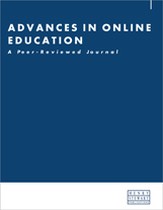Exploring the impact of generative AI literacy on teaching practices and pedagogical alignment
Abstract
The embedding of generative AI (GenAI) tools in education has become a groundbreaking development, creating significant opportunities to enrich teaching practices and drive innovative learning design. This study investigates how educators evaluate the impact of these tools on their teaching, the extent to which their practices align with established pedagogical frameworks and how artificial intelligence (AI) literacy influences their adoption and use of such technologies. Employing a mixed-methods approach, the research analysed survey data from participants of a Generative AI in Education massive online open courses (MOOC). Quantitative findings reveal high levels of satisfaction with AI tools, with educators reporting improved engagement and efficiency. Qualitative insights highlight key benefits, such as support for higher-order thinking and personalised learning, alongside challenges related to time constraints, AI literacy gaps and resource limitations. This study employs theoretical frameworks, including Technological Pedagogical Content Knowledge (TPACK), Substitution, Augmentation, Modification and Redefinition (SAMR) and Bloom’s Taxonomy, to evaluate how educators integrate AI into their teaching. While many respondents reported achieving a balance between traditional and innovative pedagogies, fewer utilised AI tools for transformative practices. The findings underscore the need for targeted professional development, tailored resources and ongoing ethical considerations to maximise the benefits of AI in education. This research advances the discussion on AI-enhanced teaching by offering actionable insights for educators and institutions aiming to align AI tools with pedagogical goals. By addressing barriers and utilising the functionalities of GenAI, this study advocates for its role in redefining teaching and learning, setting the stage for more engaging, efficient and equitable educational experiences.
The full article is available to subscribers to this journal (subscription is free).
Author's Biography
Gennadii Miroshnikov Dr Gennadii Miroshnikov is Senior Learning Designer at King’s College London. He has over 15 years’ experience in technology-enhanced and blended learning across higher and professional education. He regularly contributes as a visiting lecturer at several UK universities, including the Open University and the University of Sussex, where he teaches topics such as systems thinking and its interdisciplinary applications. His research focuses on the integration of systems thinking into educational practice, with particular interest in scenario planning, strategic forecasting and the development of future-oriented learning design. Gennadii is also actively involved in academic development initiatives that explore innovation in digital education and curriculum transformation. He works extensively on enhancing the quality of online education, contributing to institutional strategies for improving learning design, student engagement and pedagogical alignment in both higher and professional education contexts.
Mike Bennett Dr Mike Bennett is a Senior Higher Education Professional with more than 15 years’ experience in digital, professional and transnational education. He has held senior academic and management roles across UK institutions, building expertise that bridges academic affairs, strategic leadership and student experience. His doctoral and postdoctoral research centres on curriculum design, graduate employability and experiential learning in diverse educational settings. Mike is particularly interested in how institutions can design inclusive, future-facing curricula that support lifelong learning and global engagement. He is also actively involved in initiatives to improve the quality of online education, with a focus on developing robust digital learning strategies and ensuring pedagogical coherence across diverse delivery modes in higher and professional education.
Citation
Miroshnikov, Gennadii and Bennett, Mike (2025, September 1). Exploring the impact of generative AI literacy on teaching practices and pedagogical alignment. In the Advances in Online Education: A Peer-Reviewed Journal, Volume 4, Issue 1. https://doi.org/10.69554/OFRH4163.Publications LLP
